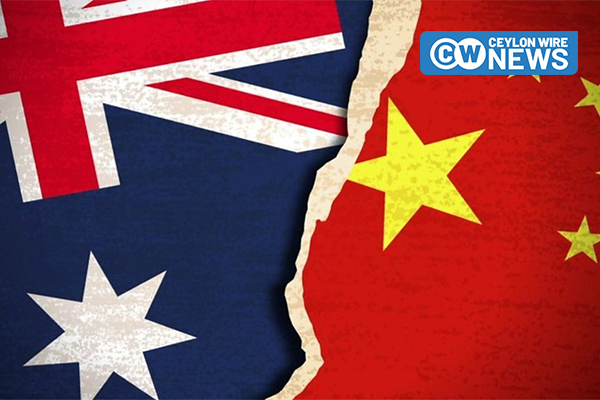A joint report by KPMG and the University of Sydney has unveiled a significant downturn in Chinese investment within Australia during the year 2023. Contrasting figures from 2022 indicate a substantial 37% decrease in investment, plummeting from US$1.42 billion to US$892 million. This decline is echoed in Australian dollar terms, with a 36% reduction from AU$2.10 billion in 2022 to AU$1.34 billion in 2023. Notably, direct investment from China saw a parallel 37% drop, marking its second-lowest level in 18 years.
This downturn contrasts with a global surge in China’s outbound investments, primarily propelled by initiatives aligned with President Xi Jinping’s Belt and Road Initiative, which focuses on infrastructural projects in participating nations. Authors of the report, Doug Ferguson (KPMG’s head of Asia & International Markets) and Helen Zhi Dent (KPMG’s China Business Practice partner), also spotlighted a decline in Chinese investment across traditionally attractive sectors in Australia, notably commercial real estate and mining.
The report speculates that China may be pivoting its Belt and Road Initiative (BRI) focus away from mere infrastructure development and resource extraction towards establishing processing facilities. This potential shift poses “competitive challenges” for Australia, as highlighted by the report’s authors. An illustrative example is China’s substantial investments in Indonesia’s nickel industry, enabling Indonesia to emerge as a major global supplier of nickel by processing raw materials into higher-grade products—a domain previously dominated by Australia. Consequently, the influx of Indonesian nickel drove down prices, adversely affecting Australian miners, leading to job cuts and production reductions.
Amidst these economic shifts, China faces internal challenges, including a sluggish property market and subdued consumer confidence, which cast shadows over its future growth prospects. Additionally, the report underscores a significant decrease in Chinese investment overseas, with the United States experiencing its lowest levels in nearly two decades and a prolonged decline in Australian investment over recent years. This decline in Australia is partly attributed to escalating political tensions between the two nations, compounded by trade sanctions imposed by China, albeit some recently lifted.
The decline in Chinese investment in Australia predates recent tensions, as evidenced by a 2021 report from the Australian National University, which revealed a staggering 61% drop in 2020, following a 47% decrease in 2019. These figures align with strained bilateral relations, exacerbated by Australia’s advocacy for stricter World Health Organization inspections in 2020, prompting threats of Chinese consumer boycotts. Subsequent reports, including the 2022 demystifying Chinese investment report, corroborate this downward trend, attributing it to a combination of factors such as shifts in China’s economic priorities, tightened approval processes in Australia, and pandemic-related travel restrictions.
The recent downturn in Chinese investment in Australia can be attributed in part to stricter regulatory measures imposed by the Australian government on foreign investment, particularly in sensitive sectors crucial for emerging technologies, like critical minerals. Concurrently, there has been a notable surge in Japanese investments in Australia, as indicated by a new report by Herbert Smith Freehills and Australian National University, marking a record year for Japanese investment in 2023.
In light of these shifting dynamics, it is speculated that Chinese foreign direct investment (FDI) may redirect towards developing nations in Africa, South America, and the Middle East, away from developed economies due to heightened scrutiny. This recalibration presents challenges to China’s aspirations for global economic leadership, underscored by the evident decline in trade and investment with Australia. The reports by KPMG and the University of Sydney underscore the evolving landscape of global investments, highlighting the imperative for recalibrated economic strategies amidst geopolitical shifts and regulatory complexities.
Source – thehongkongpost.com









